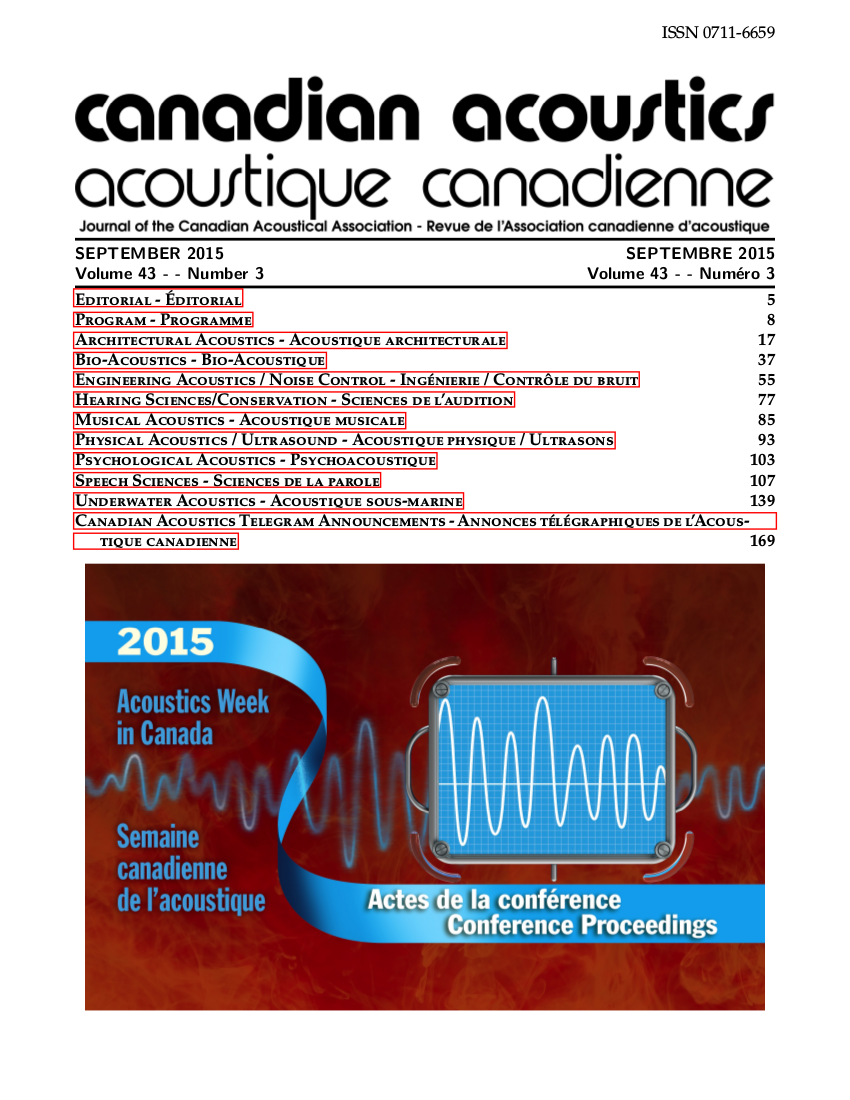The effect of vocal emotion identification on word repetition and recall accuracy in noise
Abstract
Purpose: The aim of the study was to determine if memory for words spoken in noise depends on vocal emotion (fear, neutral, pleasant surprise, or sadness) to a greater extent if the listeners are engaged in an emotion identification task (current experiment) compared to only repeating the words (previous experiment).
Hypotheses: It was hypothesized that there would be an effect of emotion on repetition and recall and that this effect would be greater for repetition and recall accuracy when listeners were engaged in a task that drew attention to the identification of the vocal emotion. Performance was expected to be better for words portraying arousing emotions (fear and pleasant surprise) than for words spoken with sad or neutral emotion.
Methods: Participants listened to 100 sentences spoken in four different emotion conditions. All words were semantically neutral. Participants were instructed to 1) repeat the word presented, 2) identify the emotion in which it was spoken, 3) judge whether the word began with the first or second half of the alphabet, and 4) after each set, recall as many words as possible that had been heard in the set.
Results: Repetition accuracy was higher for words spoken to portray fear than sadness, but pleasant surprise was the same as neutral. Similarly, recall accuracy was highest for words spoken to portray fear, and lowest for sadness. The addition of the emotion identification task did not alter performance. Emotion identification was highest for pleasant surprise and lowest for neutral.
Additional Files
Published
How to Cite
Issue
Section
License
Author Licensing Addendum
This Licensing Addendum ("Addendum") is entered into between the undersigned Author(s) and Canadian Acoustics journal published by the Canadian Acoustical Association (hereinafter referred to as the "Publisher"). The Author(s) and the Publisher agree as follows:
-
Retained Rights: The Author(s) retain(s) the following rights:
- The right to reproduce, distribute, and publicly display the Work on the Author's personal website or the website of the Author's institution.
- The right to use the Work in the Author's teaching activities and presentations.
- The right to include the Work in a compilation for the Author's personal use, not for sale.
-
Grant of License: The Author(s) grant(s) to the Publisher a worldwide exclusive license to publish, reproduce, distribute, and display the Work in Canadian Acoustics and any other formats and media deemed appropriate by the Publisher.
-
Attribution: The Publisher agrees to include proper attribution to the Author(s) in all publications and reproductions of the Work.
-
No Conflict: This Addendum is intended to be in harmony with, and not in conflict with, the terms and conditions of the original agreement entered into between the Author(s) and the Publisher.
-
Copyright Clause: Copyright on articles is held by the Author(s). The corresponding Author has the right to grant on behalf of all Authors and does grant on behalf of all Authors, a worldwide exclusive license to the Publisher and its licensees in perpetuity, in all forms, formats, and media (whether known now or created in the future), including but not limited to the rights to publish, reproduce, distribute, display, store, translate, create adaptations, reprints, include within collections, and create summaries, extracts, and/or abstracts of the Contribution.


